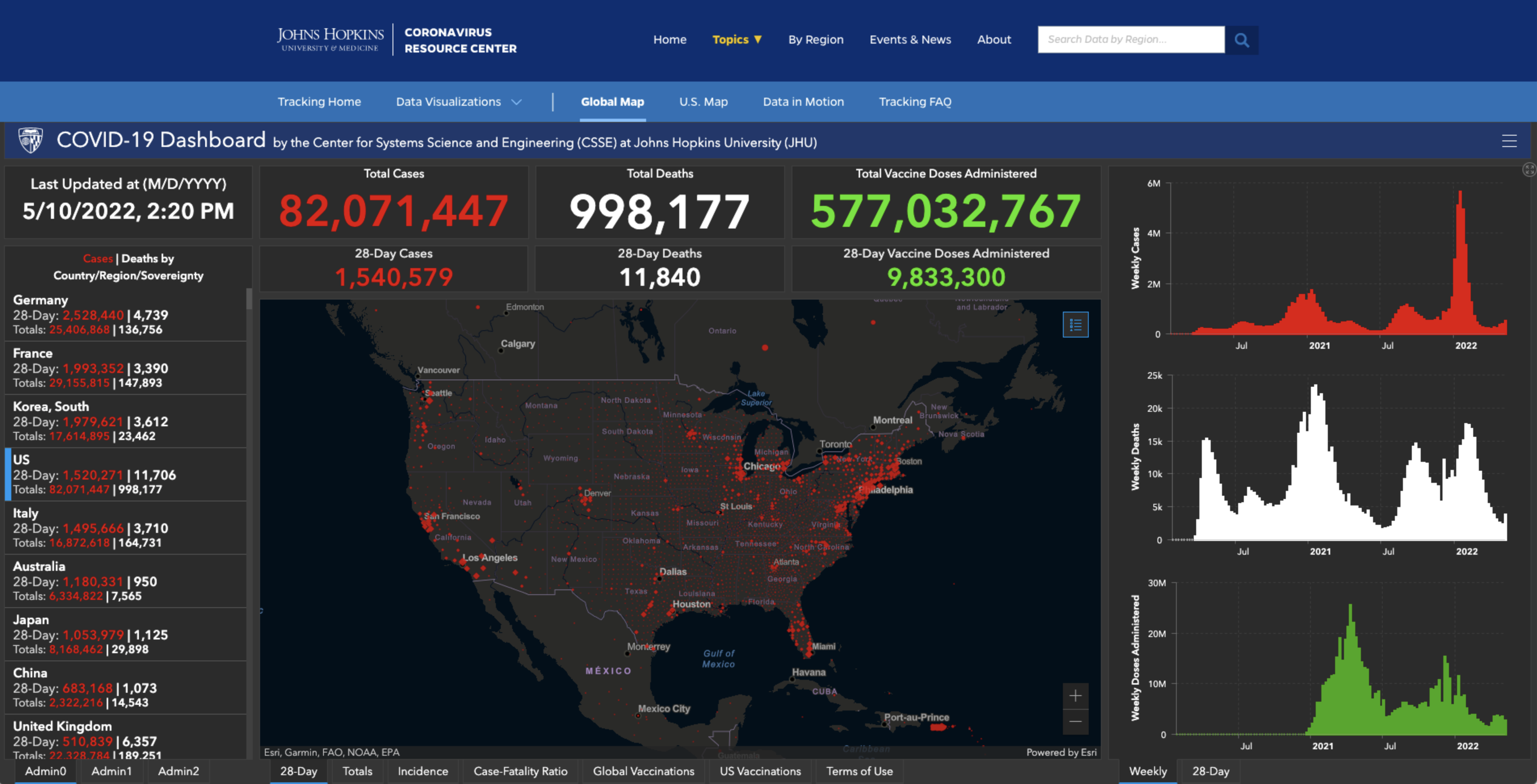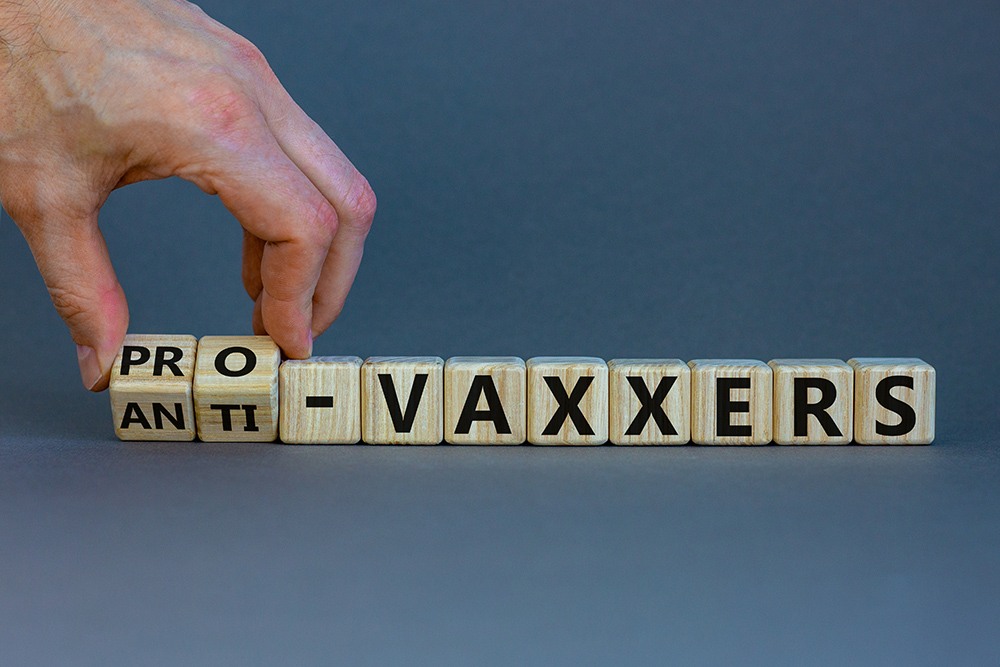How American Opinions of Vaccines and Wellness Have Changed Since the Emergence of COVID-19
It's hard to believe that 2 years has passed since the emergence of COVID-19, and even back then it was hard to imagine the damage and chaos the disease would reap upon mankind and our way of life. After 82 million cases and nearly a million deaths, lockdowns, toilet paper shortages, and the co-habitation of work-from-home parents with their remote-learning children, the lives of Americans certainly changed, and in many ways those changes will be permanent.
At the onset of the pandemic, I wrote a blog post that profiled pro- vs anti-vaxxers, anticipating that those two segments of Americans would change dramatically due to the COVID-19 pandemic (I was right and wrong). My hypothesis was that as the pandemic raged and vaccines were eventually rolled out, public opinion on vaccinations would change in the United States - meaning anti-vaxxers would adopt a more positive opinion of vaccines. What I found was fascinating.
COVID'S Rise - By the Numbers
When I wrote my original blog post in April of 2020, the Johns Hopkins COVID-19 Map showed over 1,000,000 confirmed cases of this coronavirus globally. The US had the most cases at 245,000, along with 6,000 deaths. Compare that to today, where we've seen over 82 million cases in the US (as of 5/10/22), and nearly a million deaths.


Clearly, the rapid spread of the COVID-19 virus across the globe, and its deadly consequences for those at risk, led to the fastest vaccine development in history. That vaccine development, its deployment and related mandates have been some of the more polarizing topics during this pandemic. So it is no surprise that attitudes amongst vaxxers have shifted. What was surprising was the direction of that shift.
Leveraging data from our Fall 2021 USA Study, we took a look at how consumers felt about vaccines after the emergence of COVID-19, specifically those who strongly agree and disagree with the statement “The benefits of vaccines outweigh any possible risks". In 2019, among adults 18+, 50% agreed strongly with that statement, representing the segment we identify as “pro-vaxxers.” Anti-vaxxers – or those who disagree strongly with that statement – made up just 7% of US adults. Fast-forward to 2021, the pro-vaxxers dropped from 50% down to 37%, and the anti-vaxxers grew from 7% to 10%.
Attitudes
In 2019, our data showed clear differences in attitudes around health and medicine between the two groups, with anti-vaxxers tending to believe more strongly in the use of herbal or non-traditional medicines and pro-vaxxers taking a more conventional approach. In 2021, we see some declines, with herbal supplements and alternative medicines dropping 10 and 12 percentage points respectively amongst anti-vaxxers. When responding to the question 'Medicine has improved the quality of my life', both groups show a slight decline.
Product Usage
When it comes to product usage among these vaxxer segments, some trends are not surprising. For example, use of hand sanitizer was up nearly 30 percentage points in pro-vaxxers, and up 20 percentage points in anti-vaxxers. Cold, Sinus and Allergy medication use was either flat of down amongst the two groups, undoubtedly due to extended periods of time that American's were in quarantine and were unable to pass germs to each other. The data also shows that use of vitamins and dietary supplements is up sharply amongst both groups, while use of cigarettes and cigars declined for both. According to the CDC, smoking among US adults has been on the decline since 2005. Did the COVID-19 pandemic help accelerate that trend? These shifts could potentially be part a bigger trend around well-being, which I'll explore in the next section.
Wellness and Well-Being
There is a bigger macro trend playing out across the country around wellness and well-being (yes, there is a difference). One of the many side effects of COVID-19 has been "The Great Resignation", where employees are leaving their jobs in droves for new positions that offer better pay and more flexibility (like working from home). For many, the ability to work from home, avoid hours of traffic and spend more quality time with family is a mental and emotional well-being benefit that is more important than Tuesday morning bagels and a cubicle.
When it comes to wellness (which refers primarily to physical health), the data seems to show some potential trends amongst vaxxers (and Americans at large). Noted above, the use of vitamins and dietary supplements is up amongst both groups, and cigarette and cigar use is down. What is up for both segments is various types of exercise. Hiking jumped 8 percentage points for pro-vaxxers and 7 percentage points for anti-vaxxers since 2019. Walking was up 12 percentage points for pro-vaxxers and 5 percentage points for anti-vaxxers. Road bicycling also saw small increases of 2 to 3 percentage points for both groups. Granted, some of these increases were likely due to lockdowns and American's desire to just get out our their homes, but it may also signal a shift in American mindsets about wellness and well-being. Only time will tell, but if that is the case, we'll have COVID to thank for it.
Summary
While American's trust in vaccines and medicine seems to have declined over the past two years, it appears many are taking wellness and well-being into their own hands. We'll have to wait and see if those trends continue or not. For brands, understanding how to reach these consumers will be paramount. Marketers in pharma, CPG, healthcare or even federal/state governments can leverage MRI-Simmons' consumer truth set to understand:
- How are consumer attitudes and behaviors changing over time?
- What are the primary media consumption habits of consumers?
- What type of advertising resonates with consumers the most?
- How do you reach a target consumer out of home?
- Where does my target audience find / access health information?
To learn more about MRI-Simmons' rich consumer truth set, please contact us today.



